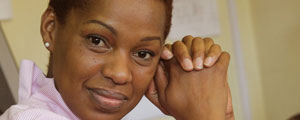
On Valentine’s Day couples around the world celebrated the festival of love in a hundred different ways. The following day in Johannesburg, Reeva Steenkamp lay dead in the arms of Oscar Pistorius, her Olympic Gold medalist lover.
By Thembe Khumalo
One year earlier and a million miles away in Surrey England, a Zimbabwean woman Mitchel Mpofu, lay dead in the arms of her lover after committing suicide. They had a disagreement on Valentine’s day.
The picture posted of Mpofu on the Internet showed a sweet young thing full of life and hope. Steenkamp was a successful model whose image continues to radiate beauty and vitality after she had gone.
How did such liveliness become death? How did love become war? In the presence of those we love, we expect safety, security, protection and provision.
Our new constitution includes gender equality as one of the founding values and principles of Zimbabwe. Yet in the same Zimbabwe it is estimated that 20 women are assaulted by their spouse every day.
- The draft constitution further provides for a gender commission, whose functions are listed as:
- To monitor issues concerning gender equality to ensure gender equality as provided in this Constitution;
- To investigate possible violations of rights relating to gender;
- To receive and consider complaints from the public and to take such action in regard to the complaints as the Commission considers appropriate;
- To conduct research into issues relating to gender and social justice and to recommend changes to laws and practices which lead to discrimination based on gender;
- To advise public and private institutions on steps to be taken to ensure gender equality;
- To recommend affirmative action programmes to achieve gender equality;
- To recommend prosecution for criminal violations of rights relating to gender;
- To secure appropriate redress where rights relating to gender have been violated and
- To do everything necessary to promote gender equality.
But its not just adults who suffer at the hands of those they love, its children too. Vulnerable and unprotected children who look to us for love and protection are victims of adult ugliness.
In a report released in December 2012, the Zimbabwe Republic Police Victim Friendly Unit said more than 2 400 children under the age of 18 were victims of rape between January and October 2012. There were 3 421 sexual abuse cases of minors reported during that period.(mzwazwa.byo24.com)
- Chamisa under fire over US$120K donation
- Mavhunga puts DeMbare into Chibuku quarterfinals
- Pension funds bet on Cabora Bassa oilfields
- Councils defy govt fire tender directive
Keep Reading
But where does all this ugliness come from? Where is the desire to hurt other people, particularly those weaker than oneself, born?
We generally acknowledge that hurt people hurt people and we see that a people against whom violence has been perpetrated are likely to be perpetrators themselves.
It is the paradox of pain.
As you read this, you may be thinking, “Well I am a man, but I don’t beat up women, much less shoot them!” Or you may be thinking, “I am a woman, I don’t beat up anyone and in fact I am potentially a victim myself!”
But the men who do assault, harm and kill women they purport to love are not just stand-alone individuals.
They are someone’s brother, someone’s son, someone’s uncle, someone’s cousin and someone’s neighbour. They are someone’s in-laws. They are members of a community in which we all participate and in which we must all have a voice.
NewsDay columnist Ropafadzo Mapinhidze wrote a poignant piece in this paper about how her father’s relatives would assault her mother and no one helped. She writes “. . . my mother would get battered while her sisters-in-law watched with excitement. Women too are instigators of violence . . . ”
Are you guilty because of your relish of the drama that ensues when someone you know gets assaulted by a man? Are you guilty because of your silence? Or are you guilty because of the way in which you raise your sons?
We don’t often relate the violence that manifests itself in adult males to how we raise our boys. We teach boys that its important to be big and strong, ( . . . eat your food so that . . . )to behave in manly ways, to swallow pain quietly and to be “tough”. Are these the qualities that foster violence at a later stage of life?
What then does it mean to be a man, and who is teaching your boy the rules? Will the lessons he hears at your breakfast table, the values he absorbs around family gatherings, the examples he sees in your walk and in your talk lead him to become a man who makes war out of love? What kind of man will your little boy be?
And then again there is the parenting of little girls. When we teach our daughters that beauty equals pain, that good girls keep quiet, or that a woman obeys the man in her life “father or husband” are we setting them up for life as victims. Society needs rules, because rules make life easier, simpler and clearer.
But are the rules we are following today right and relevant? Or are they turning our spaces of love and security into killing fields?
- lThembe Khumalo writes in her personal capacity. Readers’ comments can be sent to [email protected]. Follow Thembe on Twitter www.twitter/localdrummer or visit her facebook page www.facebook.com/localdrummerzw











